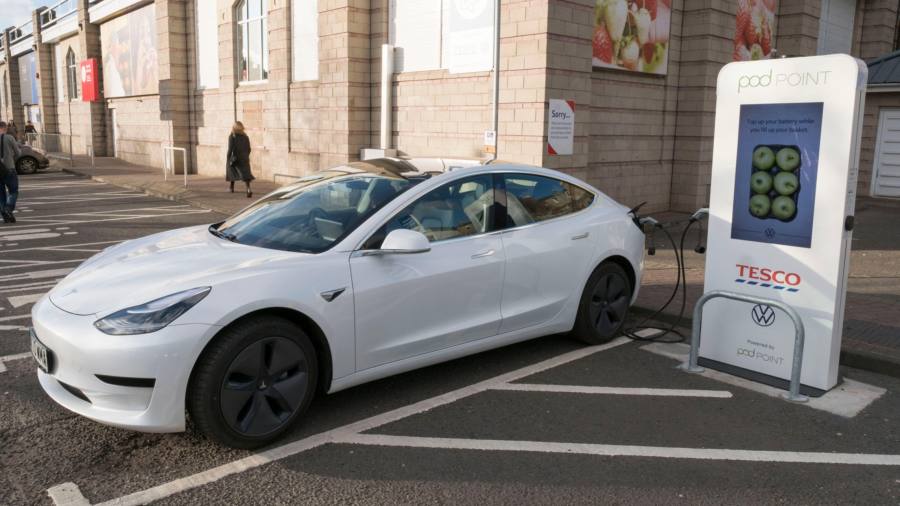
Electric car charging group Pod Point issued a profits warning after long waiting times for plug-in vehicles led car buyers to delay installing home chargers, its largest source of revenue.
Sales growth of electric vehicles or hybrids that plug in to recharge has “slowed markedly” over the past year and a half, the EDF-backed group warned, prompting shares to fall 6 per cent to 71.40p by late morning on Monday.
In some cases, global supply constraints mean customers are waiting for more than a year for new models, leading buyers to push back paying for a charging point at home.
As a result, the company expects to make a £7mn loss this year on sales of £70mn, with the problem likely to lead to a “mid-single digit” loss during 2023 as well.
There is “no shortage of demand” for battery-powered cars, said Pod Point chief executive Erik Fairbairn, but “there is just insufficient supply of vehicles coming into the market”.
“Any industry linked to the sale of new plug-in vehicles gets affected by that,” he told the Financial Times.
He expects the UK to hit its long-term target of phasing out petrol and diesel car sales by 2030, but with a steeper than expected increase in the second half of the decade.
“It is going to be a bit tougher for the industry over the next year,” he added. “This is a very small road hump in the journey towards electrification.”
About one in five new vehicles sold in the UK are battery electric or plug-in hybrid, according to official figures from industry body SMMT.
Sales growth slowed to 7 per cent in the second half of the year compared with a year earlier after rising 26 per cent in the first half.
Shortages of semiconductors and unpredictability of other key parts mean Pod Point does not expect supply of electric cars to ease until 2024.
About 60 per cent of Pod Point’s revenues come from fitting home chargers, with the rest from workplace and other commercial installations.
Demand from businesses for charging stations has also slowed slightly, Fairbairn added, as companies rein in spending because of the economic conditions.
The number of charge points it fits for companies would be growing “slightly faster without the macro situation”, he said, but added that long waiting times for car orders were still the largest drag on the rollout.
The company installs charging points at Tesco and Aldi, and for businesses including Thames Water and DHL.